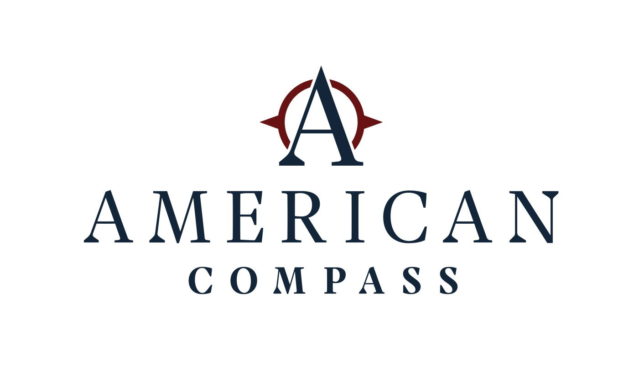Labor Watch
What to Make of American Compass’s “New Conservative Voter”


American Compass, the statist think tank funded by liberal Big Philanthropy as part of liberal Big Philanthropy’s program to overcome free-market economic thinking, has released a new poll. Surprising no one, American Compass claimed to discover a “new conservative voter” who rejected Reaganite free(ish) market economic thinking and instead preferred the Democratic economic platform of the Walter Mondale era, with strong labor unions, central planning, and expanding the regulatory state.
But did it?
Regarding Issue Polling
First, it is worth interrogating the enterprise of issue polling itself. Anyone familiar with public advocacy will recall cases of competing interest groups throwing around contradictory issue polls, each (unsurprisingly) showing their own side to be extremely popular.
Why is this? Issue polling may use “scientific” sampling methods, but it is hardly a scientific enterprise. Indeed, issue polls are almost always conducted to persuade, either by encouraging a public bandwagon effect or by convincing policymakers to jump on a bandwagon. By framing question wording, changing the context in which questions are asked, and choosing particular response choices, an advocacy group can “scientifically” discover that—What a shock!—the public supports what the advocacy group does. (The 1980s British political comedy Yes, Prime Minister has a sequence that illustrates this dynamic in simplified form better than I possibly could, one can view it on YouTube.)
On the Public and Parties
Unlike people who do public advocacy for a living, most voters do not have deeply formed ideological world constructs or deeply researched policy opinions. They might have a general ideological or partisan tendency, but on particular policy questions—especially ones that are not at the forefront of partisan debates—they follow “vibes.” Those vibes might include the leadership of favored politicians, the need to oppose the actions of hated politicians, the indications of favored commentators, a general sense of how good or bad the country seems to be doing, and assorted observations from their own personal lives and the lives of their neighbors.
Closely aligned with the “follow the vibes” approach is what one might call the “broccoli and ice cream” principle of political deliverables. Both parties have policy platforms most people like that might not be good for the long-term health of the government or society—ice cream. Think of tax cuts for Republicans, interest group–focused welfare spending for the Democrats, and not touching entitlement spending for both parties.
They also have policy platforms that people largely do not like, even if they are good for the long-term health of the government or society—broccoli. Here the Republicans serve domestic spending cuts, and the Democrats serve middle-class tax increases. A political faction doing politics well uses the “ice cream” policies to soften the public up to eat the “broccoli” policies, though more often the ice cream is consumed alone and in great quantity, which may explain present federal budgetary obesity.
American Compass’s Findings
With all that throat-clearing out of the way, what did American Compass’s poll actually find? Much of the poll write-up consists of a breakdown of Republican voters into buckets based on whether they support “Old Right” (traditional Reagan-Gingrich-Bush 43-Ryan Republican) economic policies or “New Right” (populist, American Compass–aligned) economic policies.
This is largely a pointless exercise. Voters, who largely “follow the vibes,” do not tend to think like this. Even if they did, an advocacy group poll is not likely to give a fair breakdown of such buckets.
Some of the issue results are unsurprising. Republican voters tend to prefer immigration restriction, and American Compass’s findings concur. But in a demonstration of the problems of the issue-polling enterprise discussed above, American Compass frames this as voters rejecting the notion of a “labor shortage,” even though the response most Republicans rejected explicitly proposed “solutions like higher immigration.”
Republican voters also did not favor taxpayer provision of higher education loans and want colleges to control their own costs. Republican voters also love their ice cream . . . er, tax cuts . . . even though American Compass’s executive summary claimed they “have abandoned the traditional Republican Party focus on tax cuts” among other free-market policies. Republicans also did not mind eating some broccoli: Respondents opposed an $800/month parental subsidy for parents with two children.
On Labor Unionism
Since the poll was sponsored by American Compass, which has proposed and endorsed importing European state-directed labor unionist approaches such as works councils and sectoral bargaining, the poll also asked Republican voters the following question:
This question is about private-sector unions, which represent workers at businesses. It is not about public-sector unions, which represent teachers, police officers, and other public employees. Some people argue that unions are a positive force because they give workers a say at work, improve wages and benefits, and combat corporate power. Other people argue that unions are a negative force because they interfere with worker freedom, harm employers, and raise prices for consumers. Which is closer to your view?
In a win for the Taft-Hartley consensus, even giving that framing, Republican respondents judged unions a “negative force” by a margin of 59 percent to 41 percent. And the framing is as favorable to Big Labor as it could possibly be when talking to Republican voters by explicitly excluding government worker unions. While public-sector unions and private-sector unions are different in concept, they are often the same real-world institution.
Some unions, such as the very partisan-Democratic SEIU, represent both classes of workers. The major AFL-CIO labor federation includes unions of both classes of workers. Given the widely publicized Democratic partisanship and public un-spiritedness of the public-sector unions—which make up roughly half of American union members—this framing choice primes Republican respondents to be less unfavorable to strengthening Big Labor.
Other polling has shown support for the Taft-Hartley consensus of traditional conservative labor approaches. A coalition backing the Employee Rights Act found substantial majority support among US adults and union households (pollster-speak for homes in which at least one member is a union member) for several provisions of that bill’s approach, in a wider and less Reagan-conservative group of respondents than American Compass polled.
Conclusion
We can come to some tentative conclusions—remember, this is art, not science—from American Compass’s findings. First, Republican voters are not champing at the bit to side with union bosses, even under unrealistically anti-partisan framing conditions. Likewise, “ice cream” Reaganite policies like tax cuts remain popular, even as more broccoli-flavored policies like free trade are not popular.
Institutionalists of free-market sympathy have fraternal instruction to do. Industrial policy, the public relations–tested name for a central-planning regime of government subsidies for manufacturing, sounds like ice cream—who can be against “free” money for more jobs—and American Compass has touted that its poll found support for the recent CHIPS and Science Act. But while conservative helped liberal governments enact industrial policies, those liberal governments have used the industrial programs to advance social-liberal agendas that Republicans oppose. See, for example, the CHIPS and Science Act, which Biden administration stacked with DEI (diversity, equity, and inclusion) rules through implementing regulations.
Patronage is as old as the Republic, and the Democratic Party has always been very good at it. This is how the liberal movement keeps its coalition in line, even when members should be at odds. Even the United Auto Workers union, which is being squeezed by the shift to electric vehicles, still parrots the Green New Deal line on a “just transition” to electric vehicles to stay in the good graces of its coalition allies—and to stay in line for taxpayer-funded patronage from its political patrons. Industrial policy means more opportunities for patronage. In Democratic administrations, it means more opportunities to use taxpayers’ money to fund the left-progressive culture war.



